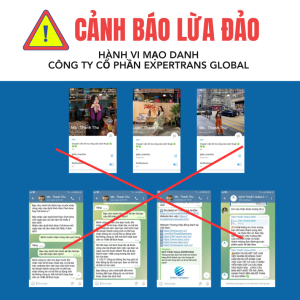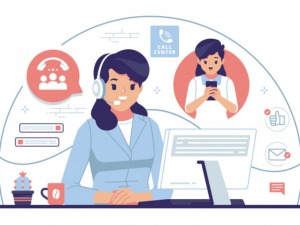Why Mastering the Art of Conversation Will Make You More Money
23rd, January, 2019
All conversation is an act of selling. It’s a way of finding out the other person’s point of view, figuring out the story they are telling themselves and ultimately positioning yourself in their mind.
To give you just one example, former FBI hostage negotiator turned business negotiation expert Chris Voss says the most powerful moments in any negotiation happen right before and right after the “real negotiation.” During that low-pressure setup or wrap up time, you have the perfect window to uncover critical information about the other side — but only if you have the conversational skills to do it.
So, let’s look at four reasons why the conversation is so powerful and how you can use it as a tool to grow your business.
 Conversation helps you learn what people want.
Conversation helps you learn what people want.
As an entrepreneur, your mind is going a million miles per hour. There are bills to pay, projects to keep on track and of course, your latest idea to grow your business. But, if you’re not steeped in the art of conversation, you will soon be operating in a vacuum.
Entrepreneurs live or die by our ability to solve people’s problems. Therefore, you have to be keenly aware of people’s wants and needs. A great way to do this that doesn’t add to your marketing budget is having great, in-depth conversations with people, both those inside and outside of your target audience.
As the old saying goes, you’ve got two ears and only one mouth for a reason. Take this to heart and spend more time listening than talking when you speak with someone.
Most importantly, you need to realize that what people say they want — and even what they think they want — is not always what they truly want. Mastering conversation gives you the power to dig deep with people and discover what truly drives their behavior, especially their buying behavior.
Conversation empowers you to provide a solution.
At its heart, a successful business is nothing more than a solution to a problem. For example, picture a young mom walking through the grocery store with her son. As she passes by the toy aisle, he screams that he wants an action figure. She wants to make her son happy, so she adds the action figure to her cart. That toy company just solved the problem of her screaming son.
As you engage someone in conversation, hunt for problems. Listen intently and ask intentional follow-up questions. Once you pinpoint their dilemma, then and only then are you ready to respond to it. Often, it’s not the problem itself that is driving their behavior — it’s the story they tell themselves about the problem.
Let’s go back to the example of the young mom grabbing the action figure. What is the story she’s telling herself in that moment? Does she want her son to quiet down so he doesn’t embarrass her in front of the other shoppers? Does she see herself as the “fun mom” and give her son toys to reinforce this identity? With the power of conversation, a smart toy seller could uncover the true motivations of her market and use that to dramatically increase sales.
Before I engage people with my business, I like to hear about their businesses and learn what would make their jobs easier, more successful and more enjoyable. Most importantly, I want to hear them tell the story about their problem and what they envision as a successful outcome in their own words.
Then I use that knowledge to give a pinpointed explanation of how my business would be a good fit for them. This specificity shows the other person that you care about their problems and helps develop trust, which is a key ingredient to any long-term relationship.
Conversation helps you tweak and grow your business.
Here’s something not enough entrepreneurs take advantage of, especially when they’re just starting out: test markets. Creating a test market is as simple as finding a group of people who all share the same problem your business is designed to solve.
Creating a test market is a great way to hone your product or service to the point where your future buyers will immediately see the value in it. After all, these are the people who have lived with the problem for a long time, so they’ll know if your solution meets their need.
If what you create hits the mark, these people will be your best marketers. If you’re off just a bit, use their feedback to clean up your idea so the next iteration is closer to perfection. Eventually, you’ll land on something that does what it should. When this happens, you will expand your business offerings, improve your existing service line and increase your reach.
The most important part of this whole process is to have open, honest conversations with your test market where you give them the freedom to give critical feedback. It would defeat the purpose of having a test market if you just cherry picked the positive feedback, so take each piece of negative feedback as an opportunity to improve your offering and outpace other, lazier businesses in your space.
Conversation makes you memorable.
You’ve had conversations with people who left you exhausted and ready for a nap. I know I have. The next time I saw that person walking toward me, what did I do? I looked for an escape route, and you probably do the same thing. Whether you duck into someone’s office, slide into the bathroom or do an about face, you go the extra mile to avoid buzzkills.
But, what if that person has a business or product that would transform your life forever? What if Mr. Buzzkill invented an instant cure for the common cold? You’ll never know because you already wrote him off. Now, he’s sitting on top of a product or service that could change the world, but he’ll never sell it. All because he can’t talk with people in meaningful ways.
With honed conversation skills, you can be memorable in all the right ways. You may not make a customer out of everyone you meet, but that shouldn’t discourage you. I can’t tell you how many entrepreneurs have come to me asking about coaching because of a conversation I had with another entrepreneur. Often, that “other” trainer wasn’t using my services but appreciated our conversation and recommended me as a result.
By the way, this reminds me of a big fat lie you’ve probably heard from a lot of sales and marketing “gurus” — the idea that you must close somebody on a deal the first time you speak with them or you’ll never make the sale. Now listen: I’m all for urgency and closing sales. I believe you should hone your selling skills until 80 to 90 percent of the people you talk to close right away. But, if you take the art of conversation seriously, you’ll find that many of the people who walk away do come back and buy from you.
That’s because if you use the art of conversation to prove that you are skilled at your craft, passionate about your industry and transparent in how you do business, you’ll create a lasting impression with everyone you meet. All those impressions will add up to your reputation, and that will be the key to building your business empire.
Source: Bedros Keuilian/Entrepreneurs

 Conversation helps you learn what people want.
Conversation helps you learn what people want.






